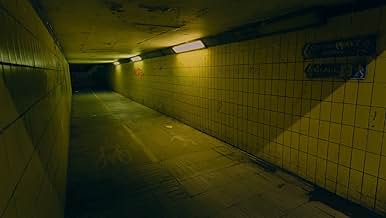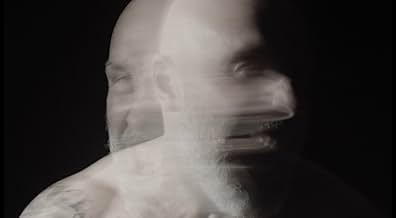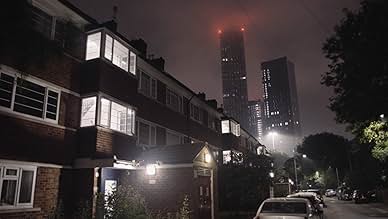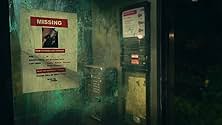This multi award-winning British feature film follows a grieving ex-English teacher as he takes us on a personal journey through Broken Britain under Margaret Thatcher in the 1980s, John Maj... Read allThis multi award-winning British feature film follows a grieving ex-English teacher as he takes us on a personal journey through Broken Britain under Margaret Thatcher in the 1980s, John Major in the 1990s and Boris Johnson in the 2020s.This multi award-winning British feature film follows a grieving ex-English teacher as he takes us on a personal journey through Broken Britain under Margaret Thatcher in the 1980s, John Major in the 1990s and Boris Johnson in the 2020s.
- Director
- Writer
- All cast & crew
- Production, box office & more at IMDbPro
Featured reviews
This is a mysterious, monologue-fuelled masterpiece filmed on a shoestring in the heart of gritty Manchester and beyond. Great writing, visuals, direction and performances, all round.
Rare, to find a film like this that is so nauseatingly intrusive on how we currently behave and live, under a fallen empire, sank by avarice and false nationalism.
It's clear to see this was done on a small budget, which admittedly took me time to adjust to and actively engage with the genius monologue driven writing that is on show, reminiscent of the agonising theatre of cruelty or Dreyer's 'Ordet'
I would of liked to have experienced more of the child actor, witnessed more of the narrative from his perspective I think would of shinned a more empathetic light on this piece. However, the monologue delivered by this child star is something I can't recall having been achieved at this level.
I may do an extended review in the future, but I can only recommend this unique indie film to all aspiring and currently struggling academics and filmmakers.
It's clear to see this was done on a small budget, which admittedly took me time to adjust to and actively engage with the genius monologue driven writing that is on show, reminiscent of the agonising theatre of cruelty or Dreyer's 'Ordet'
I would of liked to have experienced more of the child actor, witnessed more of the narrative from his perspective I think would of shinned a more empathetic light on this piece. However, the monologue delivered by this child star is something I can't recall having been achieved at this level.
I may do an extended review in the future, but I can only recommend this unique indie film to all aspiring and currently struggling academics and filmmakers.
- DO.
Like our own movie About Some Senseless Happening, I think if this movie had been made in the 1970s or earlier, it would have been banned and lost for decades without any cinema buff knowing where it went. The fable-like experimentalism of Mirage and the unvarnished, synthetically realist documentary are the only two elements that distinguish this as a standout because they dissect what makes anything meaningful and the conventions we are used to in contemporary storytelling and the narrative.
With static images emulating interviews with women from the protagonists' former lives and various straight long speeches to the camera, we follow all of the film's characters in a fashion that many would describe as barely "cinematic." All this is linked to the tale-like qualities noted earlier, with a scene reminiscent of the fable and the calming and omnipotent narrator acting as liberating and reflection points for the curiosity as a whole. It seems that there are many speakers talking to camera about speech.
However, I believe it is a reductive and unreasonable standard to use in this particular instance. What "Nobody Loves You and You Don't Deserve to Exist" gets right are its universal truths about family, society, art, and purpose. People in this story are paradoxical in that they can both hurt and help those around them, demonstrating the sick and twisted nature that this lack of personal purpose in favour of sins brings onto those around them.
When we look at you in reflection? Is it the version of ourselves we want to see, or do we feel like we want to see it?
With static images emulating interviews with women from the protagonists' former lives and various straight long speeches to the camera, we follow all of the film's characters in a fashion that many would describe as barely "cinematic." All this is linked to the tale-like qualities noted earlier, with a scene reminiscent of the fable and the calming and omnipotent narrator acting as liberating and reflection points for the curiosity as a whole. It seems that there are many speakers talking to camera about speech.
However, I believe it is a reductive and unreasonable standard to use in this particular instance. What "Nobody Loves You and You Don't Deserve to Exist" gets right are its universal truths about family, society, art, and purpose. People in this story are paradoxical in that they can both hurt and help those around them, demonstrating the sick and twisted nature that this lack of personal purpose in favour of sins brings onto those around them.
When we look at you in reflection? Is it the version of ourselves we want to see, or do we feel like we want to see it?
When you look closely at Hieronymus Bosch's works, you'll see a slew of tiny, tucked-away micro-portraits. Religious allusions, eroticized violence, and references to heaven and hell are only some of the elements that made Bosch's art such a bizarre tapestry of sin and transcendence.
Why, you might wonder, am I referring to a 16th-century Dutch artist in the context of a film review? The explanation is simple: 'Nobody Loves You and You Don't Deserve to Exist' is a complicated code of enigmatic imagery that illuminates a link between conservative Britain and the late-medieval currents of heaven and hell.
This bold assertion is reinforced from the outset by a horrific, yet elegantly delicate medieval composition that walks us as the spectator through each micro-portrait of Bosch's "The Garden of Earthly Delights." The storyline of this film is found in the geography of medieval music. Given the prevalence of travel, pilgrimage, exile, peregrinations, and the like throughout this time, "Jack," the working-class jester disturbed by the mind of a tortured saint, is no exception. In a similar vein to Barry Unsworth or Emilio de' Cavalieri's works, the reader is immersed in the life of an outsider, in this case a whole gallery of classic medieval archetypes and relative outsiders in their own right, as they are only revealed to the audience in theatre-like extensive monologues delivered to them directly in a genius blend of performance and interview, I found myself constantly asking who is the interviewer? But, that question is not something that requires a definitive answer.
Information is pieced together through the murmurs of women, most of whom appear to have little moral culpability for Jack, except for the closing speech, which connects with the remorse we feel after the fact, when it's too late to alter anything. This is further kept together by a god-like narrator recounting to us Jack's wonders and woes, along with fantastic gothic imagery scattered with brutalist and increasingly modernist architecture, which appears to move away from purity as the tale proceeds.
To expand on this final point, I take away from this film the harmful and immoral stupidity that has steadily engulfed the now-isolated former United Kingdom. Brett Gregory, the director/writer, also thoughtfully and efficiently adapts each chaotic pane of Bosch's painting into its own narrative act, a challenging feat to do but one that rarely failed to astound me.
In short summary, excellent writing and a fresh plot, with some wonderful characters and a vivid direction, respectfully paying due to the world of art and literature alike.
Why, you might wonder, am I referring to a 16th-century Dutch artist in the context of a film review? The explanation is simple: 'Nobody Loves You and You Don't Deserve to Exist' is a complicated code of enigmatic imagery that illuminates a link between conservative Britain and the late-medieval currents of heaven and hell.
This bold assertion is reinforced from the outset by a horrific, yet elegantly delicate medieval composition that walks us as the spectator through each micro-portrait of Bosch's "The Garden of Earthly Delights." The storyline of this film is found in the geography of medieval music. Given the prevalence of travel, pilgrimage, exile, peregrinations, and the like throughout this time, "Jack," the working-class jester disturbed by the mind of a tortured saint, is no exception. In a similar vein to Barry Unsworth or Emilio de' Cavalieri's works, the reader is immersed in the life of an outsider, in this case a whole gallery of classic medieval archetypes and relative outsiders in their own right, as they are only revealed to the audience in theatre-like extensive monologues delivered to them directly in a genius blend of performance and interview, I found myself constantly asking who is the interviewer? But, that question is not something that requires a definitive answer.
Information is pieced together through the murmurs of women, most of whom appear to have little moral culpability for Jack, except for the closing speech, which connects with the remorse we feel after the fact, when it's too late to alter anything. This is further kept together by a god-like narrator recounting to us Jack's wonders and woes, along with fantastic gothic imagery scattered with brutalist and increasingly modernist architecture, which appears to move away from purity as the tale proceeds.
To expand on this final point, I take away from this film the harmful and immoral stupidity that has steadily engulfed the now-isolated former United Kingdom. Brett Gregory, the director/writer, also thoughtfully and efficiently adapts each chaotic pane of Bosch's painting into its own narrative act, a challenging feat to do but one that rarely failed to astound me.
In short summary, excellent writing and a fresh plot, with some wonderful characters and a vivid direction, respectfully paying due to the world of art and literature alike.
WOW - the hours, days and years that have gone into this film totally transparent, it captures the hearts of true Manchester as Jack embarks on a downward spiral in his life. The writing and crafting of the film is stunning in everyway. The acting is Phenomenal too!
This production company and cast are ones to watch for sure!!
This production company and cast are ones to watch for sure!!
Details
- Release date
- Country of origin
- Official site
- Language
- Filming locations
- Production company
- See more company credits at IMDbPro
- Runtime1 hour 38 minutes
- Color
Contribute to this page
Suggest an edit or add missing content

Top Gap
By what name was Nobody Loves You and You Don't Deserve to Exist (2022) officially released in India in English?
Answer












